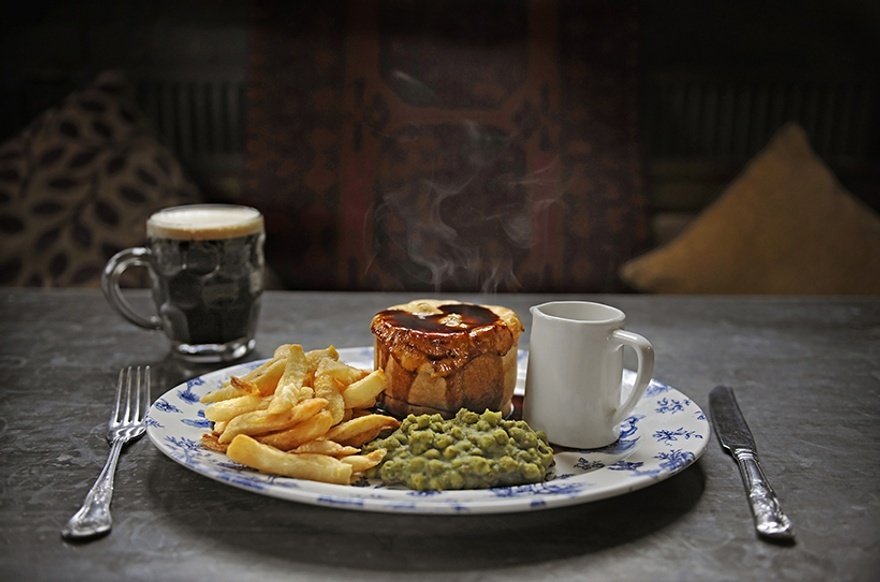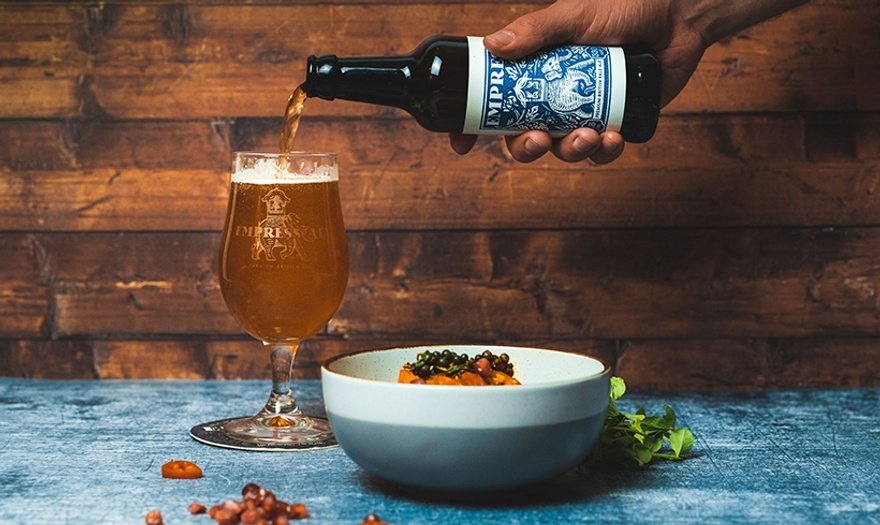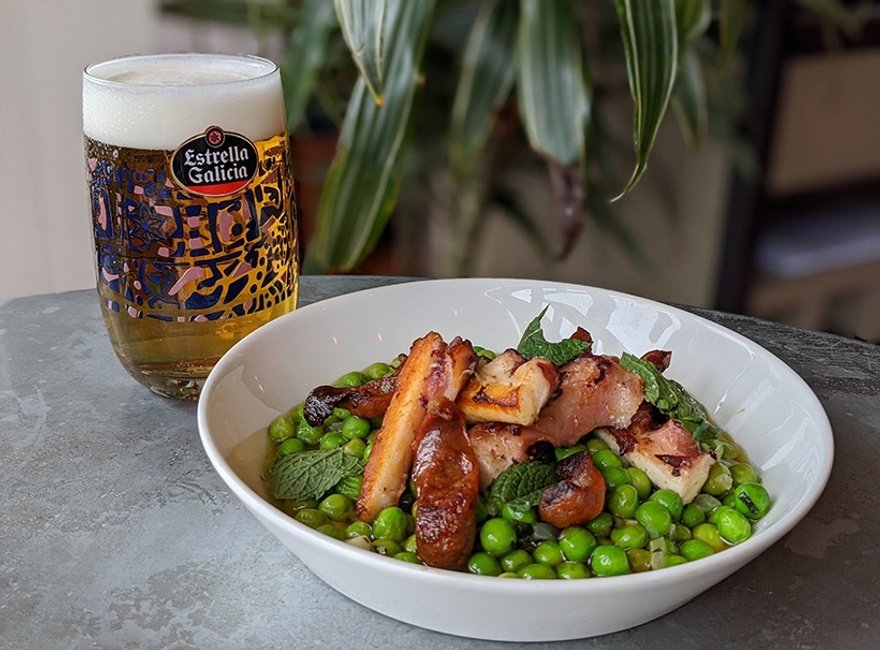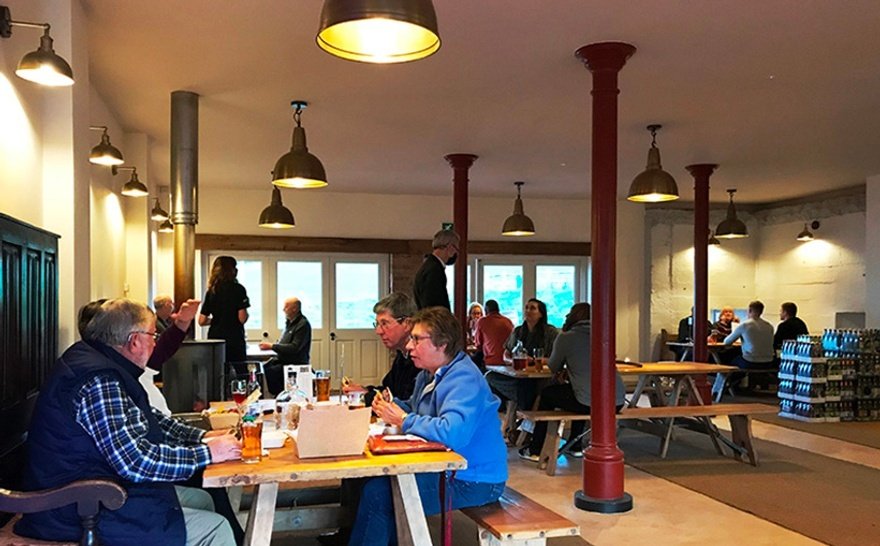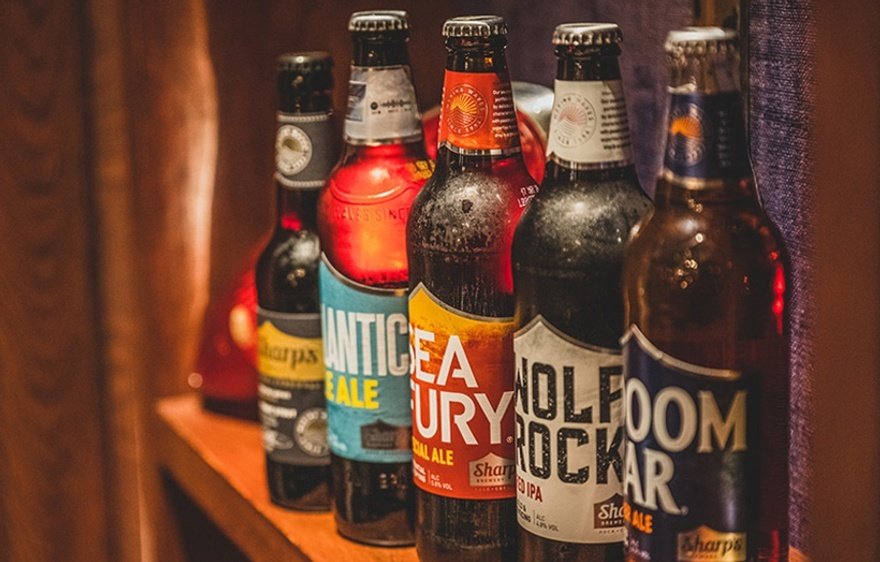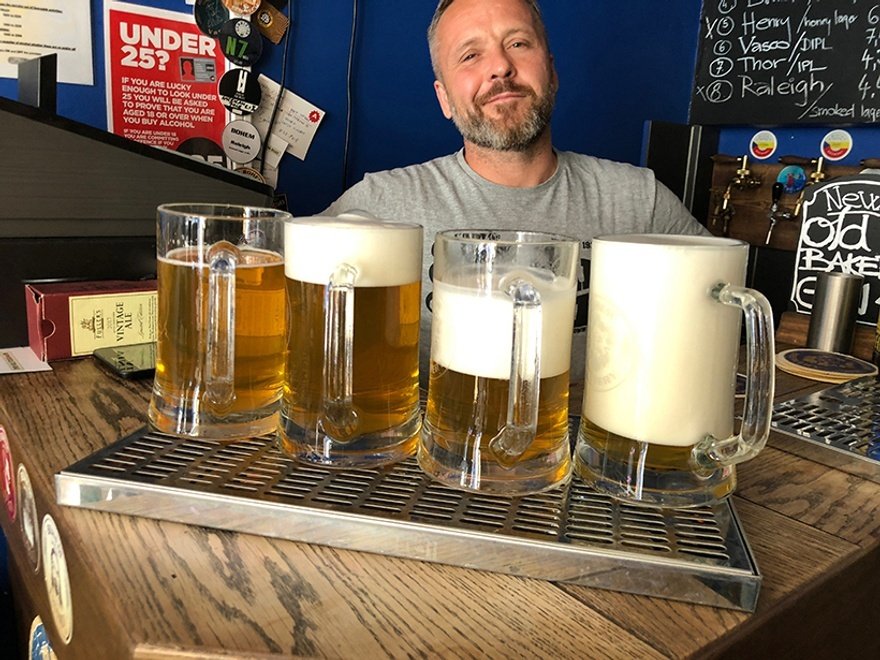Pubs may be facing an uncertain future but the thirst for beer and craft ale definitely has not diminished. John Porter looks at how pub operators can maximise the unique experience of a pint in the pub.
Predicting the post-coronavirus condition of the hospitality sector inevitably requires some finger-in-the-wind guesswork. At the time of writing, the UK is in lockdown and the speed to which businesses will be able to reopen, even if the vaccination programme is the success everyone hopes it to be, is uncertain.
But what is clear is that there will be fewer pubs trading than before the initial lockdown. The British Beer & Pub Association (BBPA) estimated in December 2020 that around 5% of pubs, somewhere between 2,000 and 2,500, had closed permanently since the initial restrictions were introduced last March. That figure both continues and accelerates the declining trend in pub numbers over recent years, more than doubling the pub numbers estimated to have closed in 2019.
This is a sobering prospect for brewers as well as pub operators. According to BBPA figures, the volume of beer sold in off-trade in the UK passed that of the on-trade back in 2014. Even so, the pub is seen as the ‘home' of beer, and a pint enjoyed in a pub remains one of the iconic images of British hospitality.
One peculiarity of the market is that even as pub numbers have reduced, more brewers are chasing a share of the market. The craft beer boom has seen the number of breweries sharply increase, surpassing 2,000 in 2017 for the first time since the 1930s. While the off-trade has embraced this craft trend, with supermarket shelves stocked with an array of brands, the Society of Independent Brewers (SIBA) annual survey in 2020 showed that pre-lockdown, sales of beer to free-trade pubs accounted for 52% of its members' business.
So, with a record number of brewers in a declining pub market, are there opportunities for beer in the broader on-trade? It seems fair to say that while ideas such as restaurant beer lists and beer and food matching have gained some traction in venues such as hotels and restaurants, the wine list remains the default suggestion.
Better margins on a bottle of wine have often been cited as one reason why many restaurants have been reluctant to promote beer matching for anything other than the occasional promotion or theme night. But in fact, craft beer has demonstrated that consumers will flex their purse-strings for the right positioning. CGA's figures show that in the four years to 2019, on-trade beer volumes fell 6.2%, while the value of those sales rose by 5.3%.
Premium product
Brewers of traditional cask ale have lamented the fact that their product, the UK's original craft beer, is not always able to command the same premium as modern craft brands. However, Tim Bird, co-founder of the six-strong gastropub group Cheshire Cat Pubs & Bars, says that outside the tied system, "ale, and beer in general, compares just as well as other drinks categories from a margin-making perspective."
While food dominates sales across the Cheshire Cat business by 58% to 42% wet sales, "I never cease to be amazed by the amount of beer we sell in relation to food," he says. "Cask ale takes up 30%-35% of our total drinks sales.
"Part of the meal experience is asking what ales are available. We only sell ales brewed by micro-breweries from within a 35-mile radius of any one of our pubs, and therefore commit to supporting local business in whatever we sell. The choices are good, the ale is fresh as a daisy and there is a local interest and a following. We are judged on the quality and variety of our ales, as well as we are with our food, and therein lies the big connection."
For most non-pub, food-led venues, where stocking cask ale is unlikely to be realistic, Bird advises looking beyond standard draught lager. "We've noticed that premium is where the lager drinker wants to be, with Estrella Damm, Peroni and Birra Moretti leading the way in our pubs. I think the reason for the increased demand is the connection these beers have with the cuisine within these countries of origin."
Mark Johnson, UK managing director for Spanish premium brand Estrella Galicia, believes the opportunity for broadening beer sales on the on-trade "depends on the type of outlet, the customer age group and their drinking occasion habits away from restaurants. That defines whether customer expectations are for wine as the preferred accompaniment to food. It's a greater challenge, for example, for some operators to persuade customers to try beer with food if they are, say, traditional white tablecloth."
Johnson's advice for promoting beer is:
- Have a broad beer style range and don't duplicate, offering premium lager, pale ale, IPA, wheat, porter and sour. Wherever possible have a gluten-free and non-alcoholic beer on offer.
- Don't compromise. The best beers command the higher retail prices and the most profitable GPs.
- Ensure a full tasting profile with mention of the hops used, the aroma and taste.
- Maximising profit once you have your range decided is all about the ‘perfect serve'. You need the right glassware, the beer to be at the right temperature, the right foam head, and with the brand logo on the glass presented facing the customer.
- Educate your staff. It needs to be a memorable experience for the customer that hopefully they will repeat.
Thought for food
Entrepreneur Surj Virk developed the Empress Ale brand in 2016 specifically to match spiced dishes. The beer has been stocked by operators including Goodman restaurants as well as at City Social by Jason Atherton and Michelin-starred Indian restaurant Benares.
"My issue when eating out was that you would always get an amazing wine list, as well as cocktails and Champagne, and then just one or two big-brand lagers," says Virk.
"I sat down with a number of chefs, restaurateurs and brewers to come up with a recipe we felt would go with a variety of cuisines. What makes Empress specific to food is that it's light and well-balanced with a floral, malty aroma and a gentle flavour that cleanses the palate."
Virk's view is that beer will have a greater appeal post-lockdown to restaurants that have had to broaden their appeal through home delivery and other tactics.
"The on-trade is very resilient; operators have diversified and adaptability has been key. Hopefully, there is light at the end of the tunnel and they will be very willing to try different products."
Mark Bentley, on-trade category controller at Molson Coors Beverage Company, says: "What defines ‘craft' is so hard to pin down because of the speed at which the category innovates." Operators cannot rest on their laurels, and must ensure the beer selection they provide keeps pace with a brewing culture that is constantly evolving and redefining itself.
"Venues can also look for opportunities to grow their alcohol sales alongside their food offering," he adds. "Customers are increasingly looking for guidance in their drink choices, so outlets should consider how options like Sharp's Atlantic Pale Ale, Offshore Pilsner and Blue Moon can complement some of the dishes on the menu and how to promote these pairings to customers."
Molson Coors has launched its ‘Just Add Beer' podcast series, focused on beer and food, featuring recipe and pairing recommendations from Sharp's head beer sommelier Ed Hughes, along with chefs such as John Walton, Chris McClurgh and Paul Ainsworth. Recipe ideas featured online include Cornish rarebit bites with Sharp's Coconut Stout, and a beef stir-fry with Sharp's Sea Fury Ale.
Surrey-based Hogs Back Brewery, while a cask ale brewer at its core, has broadened its reach in a range of ways, including seeing its bottled beers stocked in Bill's Restaurants in the county, as well as sponsoring a branded bar at the G Live venue in Guildford.
Rupert Thompson, managing director of Hogs Back, says: "I think that the pandemic has changed a lot of things and one thing people have become more aware of is the importance of their local community and supporting it, so I am hoping we will see an opportunity for good local brewers to get onto restaurant lists and bars, which were once the sole preserve of the big brands.
"We also think there may be an opportunity for smaller packs of craft beer – for instance, five-litre mini kegs that can be stored in a fridge behind the bar."
Thompson believes operators shouldn't be too concerned about price differentials between the leading brands and a local beer. "Local beer will probably cost a bit more, but customers are prepared to pay more."
Local lights
More brewers, including Hogs Back, have also opened their own tap rooms, which enable them to showcase their own beers. This creates a different customer experience and also improves margins. The Bermondsey Beer Mile, a run of brewery-owned bars in south London, has become a feature of the capital's beer culture, while specialists such as Bohem Brewery, which use its north London taproom to spotlight authentic Czech serves, can focus on their USPs.
There is, it seems, pent-up demand for beer. When hospitality was allowed to reopen in July last year, CGA reported that beer sales, while still down on pre-Covid norms, were the best performing drinks category. "Beer's relatively better showing highlights the struggle of recreating the draught pint experience at home, which has clearly left consumers thirsting for that first pint," said CGA's director of client services Jonny Jones.
Beer drinkers will be back post-lockdown, but they may have to look further afield for that all-important first pint.
Suppliers
Bohem Brewerywww.bohembrewery.com
Empress Alewww.empressale.com
Estrella Galiciawww.estrellagaliciabeer.co.uk
Hogs Back Brewerywww.hogsback.co.uk
Molson Coors Beverage Companywww.molsoncoors.com
Sharpswww.sharpsbrewery.co.uk
Continue reading
You need to create an account to read this article. It's free and only requires a few basic details.
Already subscribed? Log In

